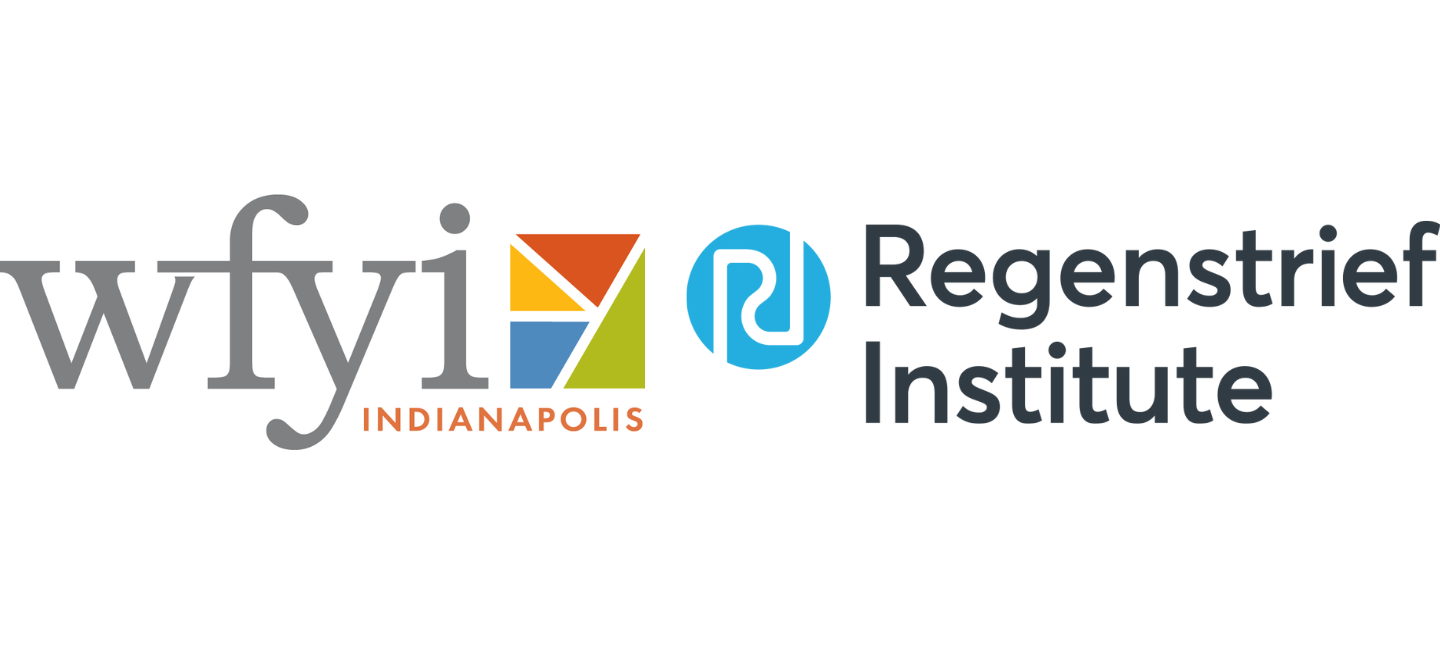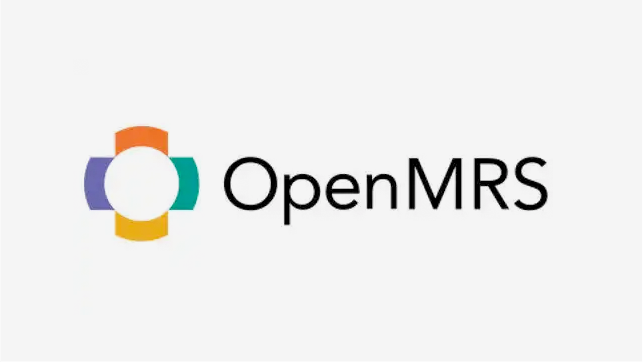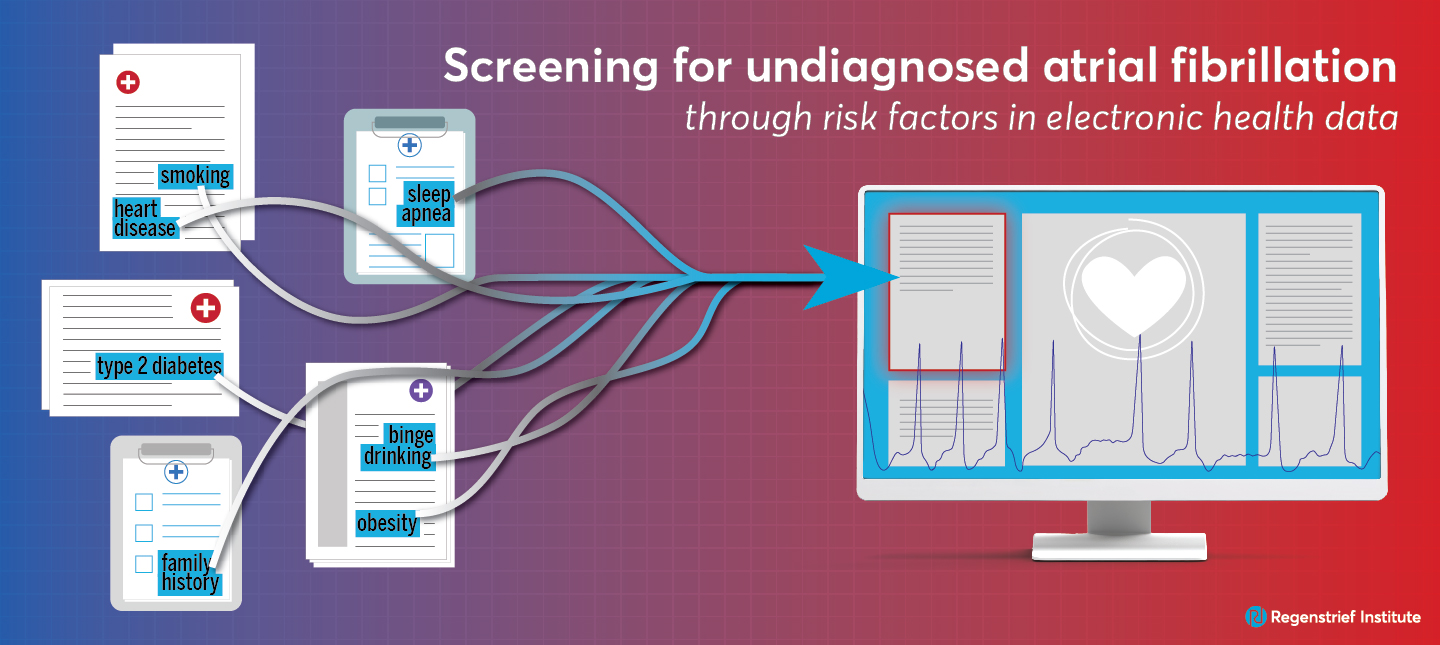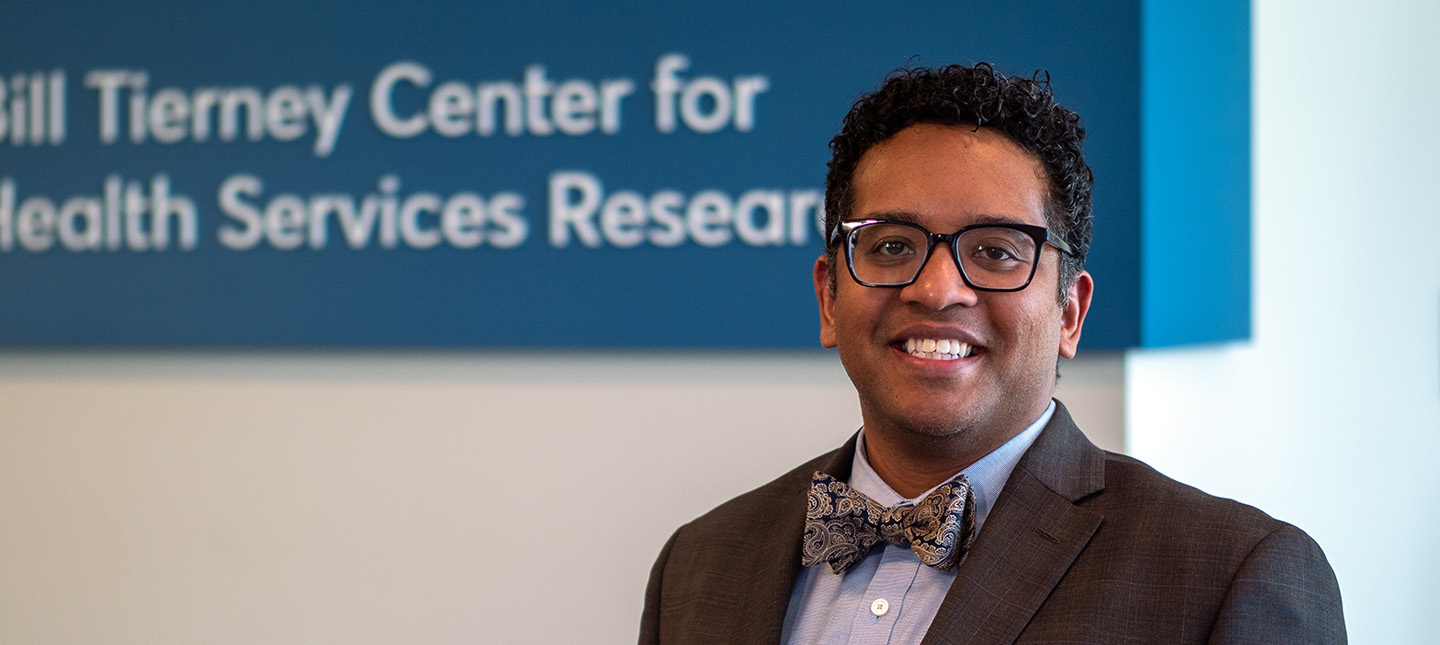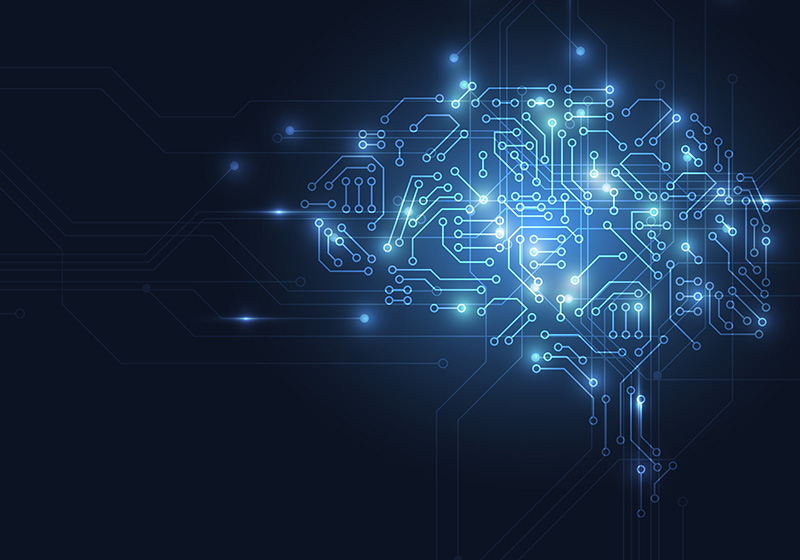
AI / Machine Learning
As technology evolves, artificial intelligence (AI) is becoming a part of everyday life, and that includes healthcare. Complex algorithms can be used to help clinicians make care decisions and identify patients at risk of diseases, complications and more. But AI implementation is in its very early stages. Regenstrief Institute is conducting extensive research and testing to develop tools that improve patient care.
Artificial intelligence can be a tool to help clinicians maximize the time they have with their patients and also understand outside factors that may be influencing a patient’s health. Regenstrief researchers are working on a number of clinical decision support solutions using machine learning and natural language processing to analyze information from electronic health records (EHRs) and data on social determinants of health. Research scientists have collaborated with partners to create a number of different tools already in use in real-world settings, including Child Health Improvement Through Computer Automation (CHICA), HealthDart and Uppstroms. Other projects involve algorithms to identify patients who might be most at risk for a certain outcome or disease.
Artificial intelligence can also be useful in public health reporting and disease tracking. Research from Regenstrief Institute and IU Indianapolis found that machine learning tools were as good as, or better than, human reviewers in detecting cancer cases using data from free-text pathology reports. They also use AI to investigate associations between symptom clusters and disease. Researchers continue to build natural language processing tools and explore ways to leverage AI and health information exchanges to better identify cases of disease, symptoms, risk factors and other information that will lead to improved public health and public health reporting.
Through its research and innovative solutions, Regenstrief is helping to shape how artificial intelligence is developed and applied in healthcare. Through collaboration with external partners, researchers are able to test, refine and implement new tools that will usher in a new era in healthcare.
Projects
Related News & Stories
AI model predicting two-year risk of common heart disorder can easily be integrated into healthcare workflow
Non-invasive, inexpensive approach provides a practical option for proactive screening INDIANAPOLIS – AFib (short for atrial fibrillation), a common heart rhythm disorder in adults, can have...
Regenstrief, IU Indianapolis lead healthcare AI conference
Picture caption: 2025 AI Conference leaders with Dr. Rachel Patzer. (From left to right) Dr. Kun Huang, Dr. Shaun Grannis and Dr. Shiaofen Fang. Not pictured...
Dr. Gonzalez: Creating a code of conduct for use of AI in healthcare
Ensuring use of AI to improve health meets its full potential reliably and safely
Regenstrief research scientist is co-editor of National Academy of Medicine draft Code of Conduct for AI use INDIANAPOLIS – Artificial intelligence (AI) is playing an ever-increasing...
Regenstrief researcher collaborating on national artificial intelligence project
NSF launch of initiative meets goal of White House executive order Regenstrief Institute is collaborating with 11 federal agencies and 25 private sector, non-profit and philanthropy...
